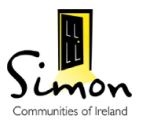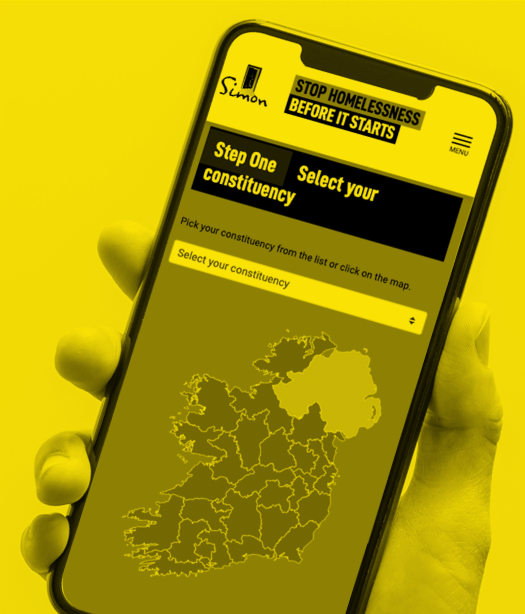We’re excited to announce that The Simon Communities of Ireland is bringing COMHOM to the 5th International Social Housing Festival (ISHF), taking place in Dublin from June 4–6, 2025. This prestigious event, hosted by Housing Europe, brings together global housing professionals, policymakers, and change-makers to share solutions and strategies for social and affordable housing. The 2025 theme #Storytelling highlights the power of lived experience and collaborative innovation in shaping housing futures.
What is COMHOM: A European Effort
COMHOM is an EU-funded project that’s all about transforming how we understand and address homelessness. At its core, it combines cutting-edge data-driven digital tools, robust monitoring and evaluation (M&E) framework and inclusive collaboration to help improve services for those at risk of or experiencing homelessness across Europe.
The project brings together:
- People with lived experience of homelessness
- Service providers
- Policy makers
- Academic researchers
Through a co-creation model, COMHOM operates across three structured phases:
- Problem Space – Understanding current challenges, needs, and barriers within homelessness services.
- Solution Space – Co-designing tools and strategies that respond to real needs and sector gaps.
- Deployment Space – Testing and refining these tools in real-world settings.
By combining participatory approaches like Participatory Action Research (PAR) and methodologies such as Soft Systems Methodology (SSM), COMHOM is building a more connected, responsive, and evidence-based framework to support people in vulnerable housing situations.
COMHOM spans 12 partners across five countries – Ireland, Finland, Greece, Portugal, and Spain, each hosting a Living Lab to test and adapt tools in local contexts. The project will culminate in a comprehensive digital platform powered by advanced algorithms that support personalized, data-informed decision-making in service delivery. It also aims to produce a Best Practice Guide to help shape a European framework for tackling homelessness based on real people, real stories, and real outcomes.
Why It Matters Now: Ireland's Crisis in Numbers
As of April 2025, homelessness in Ireland has hit a record high, with 15,580 people including 4,775 children relying on emergency accommodation, according to the latest figures from the Department of Housing. That’s an 11.2% increase from the same time last year.
While initiatives like Housing for All have led to the delivery of more social and affordable homes (7,871 new builds) in 2024, for example, the supply still falls short of meeting demand. The Housing Commission estimates a shortfall of 235,000* homes, reflecting the scale of Ireland’s housing crisis.
Despite some progress, the Simon Communities of Ireland believes it’s time for a radical shift in housing policy – one that embraces innovation, data, and inclusive decision-making.
*This represents a rounded midpoint of a range between 212,500 and 256,000 dwellings, as identified in 2022.
Beyond Borders: Homelessness in Europe
Across the EU, 700,000 people experience homelessness on any given night, a 70% increase over the past decade. However, fragmented definitions, inconsistent data collection, and the rise of hidden homelessness (especially among women, youth, and rural communities) make it difficult to grasp the full scale of the issue (OECD, 2025).
The EU and organisations like FEANTSA have made strides toward harmonizing definitions and improving data collection to better define, measure, and understand homelessness across Europe (FEANTSA, 2024). Yet significant methodological challenges remain (Develtere, 2022). Most efforts still rely heavily on point-in-time counts that, while methodologically sound, offer only partial insights. They are useful for identifying trends and informing policy, but they fall short of capturing the full picture. One of the biggest blind spots is hidden homelessness: people who do not show up in official statistics because they aren’t sleeping rough or accessing homeless services (FEANTSA, 2024).
As such, more work is needed to develop a common monitoring framework that allows us to track the complexity of lived experiences, assess policies, and build more responsive support systems.
Why Data Matters
If we can’t see it, we can’t solve it
Homelessness is, by its nature, hard to measure (Develtere, 2022). People experiencing it often live mobile, hidden lives either couch-surfing, staying with friends, or avoiding services. Many are invisible to traditional counts. That’s especially true for women, young people, rural residents, LGBTQ+ communities, ethnic minorities, and survivors of domestic abuse who often fear the stigma of showing up in official systems (OECD, 2025).
To end homelessness, we must understand it, both through numbers and through human experience. This means:
- Investing in consistent, high-quality data collection
- Including underrepresented groups in research and services
- Using digital innovation to connect local insights with national and European strategies
COMHOM is helping to lead the charge, offering practical tools and frameworks that enable smarter, faster, and more compassionate responses.
Follow us on our social media pages for updates on COMHOM and check out our dedicated webpage.
Author: Kehinde ‘Kenny’ Ogunjemilusi

